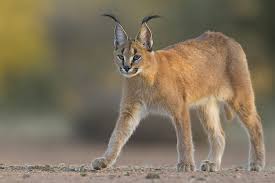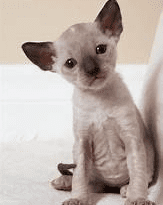Pudelpointer Dogs: Description and Complete Care Guide
The Pudelpointer is a remarkable breed of dog that combines the intelligence and versatility of the Poodle with the hunting instincts and drive of the Pointer.
Developed in Germany during the late 19th century by a German breeder named Baron Von Zedlitz, this unique breed has gained popularity among hunting enthusiasts around the world. With their exceptional tracking abilities, sharp senses, and loyal disposition, Pudelpointers have proven to be invaluable companions in the field.
The Pudelpointer is a medium to large-sized breed with a well-muscled and athletic build. They have a distinctive appearance, resembling a cross between a Poodle and a Pointer. Their dense, wiry coat protects them from harsh weather conditions and provides excellent water resistance, making them well-suited for both land and water-based hunting.
One of the most notable features of the Pudelpointer is its exceptional nose. They possess an acute sense of smell that allows them to track game with precision. Whether it’s searching for upland birds, waterfowl, or even tracking wounded game, the Pudelpointer is highly adept at scenting and trailing, making them an ideal choice for a wide range of hunting activities.
While the Pudelpointer’s primary purpose is hunting, they also make wonderful family pets. They are known for their friendly and gentle nature, making them great companions for children and other animals. However, it’s important to note that they have a high energy level and require regular exercise and mental stimulation to keep them content.
Pudelpointers are highly intelligent and eager to please, which makes them relatively easy to train. They excel in various canine sports, such as agility and obedience, and their natural instincts can be honed through structured training. Early socialization and consistent, positive reinforcement methods are essential for raising a well-rounded Pudelpointer.
The Pudelpointer’s hunting prowess is truly impressive. With their exceptional nose and stamina, they can track and retrieve game over long distances. They are versatile hunters and adapt well to different terrains, whether it’s dense forests, open fields, or marshlands.
Pudelpointers are particularly renowned for their ability to track and retrieve both upland and waterfowl. Their webbed feet and strong swimming skills make them excellent water retrievers, enabling them to retrieve waterfowl and work in marshy environments. On land, their keen sense of smell allows them to locate upland game birds, such as pheasants and grouse, with precision.
The Pudelpointer is an exceptional hunting breed that possesses a unique combination of intelligence, versatility, and hunting prowess. Their natural abilities, paired with their loyal and friendly disposition, make them an ideal choice for hunters and active families alike.
Whether you are a dedicated hunter seeking a reliable and skilled companion in the field or an individual looking for an intelligent and loving family pet, the Pudelpointer is a breed that stands out for its remarkable qualities and versatility.
Read Also: Guide to Fisheries and Fish Production
History and Origin of Pudelpointer Dogs

The Pudelpointer’s history and origin can be traced back to Germany in the late 19th century. The breed was developed by a German breeder named Baron Von Zedlitz, who aimed to create a versatile hunting dog that could excel in both land and water-based hunting.
Baron Von Zedlitz began his breeding program by crossing various breeds, including the English Pointer, the English Pointer-Setter, and various rough-haired water retrievers. His primary goal was to create a breed that possessed the tracking ability and instincts of a Pointer combined with the intelligence and water-retrieving skills of the Poodle.
To achieve his vision, Von Zedlitz carefully selected and bred the offspring with desirable traits, focusing on improving hunting abilities, temperament, and physical characteristics. After several generations of selective breeding, the Pudelpointer breed began to emerge, combining the best qualities of its parent breeds.
The name “Pudelpointer” is derived from the German word “pudel,” meaning Poodle, and “pointer,” referring to the Pointer breed. The name was chosen to reflect the breed’s lineage and its unique combination of traits.
Baron Von Zedlitz’s breeding efforts were not solely focused on creating a skilled hunting dog but also on producing a loyal and versatile companion. The Pudelpointer’s temperament was a key consideration in the breeding process, and the breed was intentionally developed to be friendly, intelligent, and trainable.
Over time, the Pudelpointer gained recognition for its exceptional hunting abilities and became popular among hunters in Germany and other parts of the world. The breed’s versatility, adaptability to different terrains, and its ability to track and retrieve game on both land and water contributed to its rising popularity.
Today, the Pudelpointer continues to be highly regarded as a skilled hunting dog and a cherished family companion. The breed’s rich history and its unique combination of traits have established it as a sought-after breed among hunting enthusiasts and dog lovers alike.
Health Issues and Lifespan of Pudelpointer Dogs

The Pudelpointer is generally a healthy breed with a robust constitution. However, like all dog breeds, they may be prone to certain health issues. It’s essential for prospective owners to be aware of these potential health concerns to ensure the well-being and longevity of their Pudelpointer. Some common health issues associated with the breed include:
Hip Dysplasia: This is a hereditary condition where the hip joint doesn’t develop properly, leading to discomfort and mobility issues. Regular exercise, a balanced diet, and proper weight management can help reduce the risk of hip dysplasia.
Progressive Retinal Atrophy (PRA): PRA is a group of degenerative eye disorders that can lead to vision loss and, in severe cases, blindness. Regular eye check-ups by a veterinarian can help detect and manage PRA in Pudelpointers.
Allergies: Some Pudelpointers may be prone to allergies, including food allergies, environmental allergies, or skin allergies. Identifying and avoiding allergens, as well as working closely with a veterinarian, can help manage these conditions.
Gastric Dilatation-Volvulus (Bloat): Bloat is a potentially life-threatening condition that affects deep-chested breeds like the Pudelpointer. It involves the stomach filling with gas or twisting, leading to restricted blood flow and potentially requiring emergency medical intervention. Feeding smaller, frequent meals and avoiding vigorous exercise immediately after meals can help reduce the risk of bloat.
Ear Infections: Pudelpointers have floppy ears, which can make them more prone to ear infections. Regular ear cleaning and proper grooming can help prevent infections. It’s important to keep the ears dry and free of excessive wax buildup.
It’s worth noting that not all Pudelpointers will develop these health issues, and responsible breeding practices can help minimize the risk. Regular veterinary check-ups, a nutritious diet, exercise, proper grooming, and maintaining a healthy weight are important for overall well-being and can contribute to a longer lifespan.
On average, Pudelpointers have a lifespan of about 12 to 14 years. However, individual lifespan can vary based on various factors such as genetics, diet, exercise, and overall health care.
To ensure the best possible health outcomes for your Pudelpointer, it’s crucial to work closely with a reputable breeder who conducts health screenings on their breeding dogs and prioritizes the overall health and well-being of the breed. Additionally, providing your Pudelpointer with regular veterinary care, a balanced diet, regular exercise, and a safe and loving environment will help promote a long and healthy life.
Read Also: The Different Classes of Farm Animals
Pudelpointer Dog Breed Complete Grooming and Care Guide
Grooming and care are essential aspects of keeping your Pudelpointer healthy, comfortable, and looking their best. Here is a complete guide to grooming and caring for your Pudelpointer:
Brushing: Pudelpointers have a dense, wiry coat that requires regular brushing to prevent matting and remove loose hair. Brush their coat at least once or twice a week using a slicker brush or a grooming tool suitable for wiry coats.
Stripping: To maintain the texture and appearance of the coat, hand stripping is often recommended. This involves plucking out dead hairs by hand or using a stripping knife. It is advisable to learn this technique from a professional groomer.
Trimming: Regularly trim the hair around the ears, paws, and tail to keep them neat and tidy. Professional grooming every few months can also help maintain the overall appearance of the coat.
Bathing: Pudelpointers have a water-resistant coat, so bathing should be done only when necessary or after a particularly muddy or smelly outing. Use a mild dog shampoo and thoroughly rinse the coat to remove all soap residue.
Nail Care: Check your Pudelpointer’s nails regularly and trim them as needed. Overgrown nails can cause discomfort and affect their gait. If you’re not familiar with nail trimming, consult a professional groomer or a veterinarian for guidance.
Dental Care: Brushing: Brush your Pudelpointer’s teeth regularly, ideally every day, using a dog-specific toothbrush and toothpaste. This helps prevent tartar buildup, gum disease, and bad breath. Start dental care routines early to get them accustomed to the process.
Dental Chews: Provide dental chews or toys designed to promote oral health. These can help reduce plaque and tartar buildup, as well as provide mental stimulation.
Ear Care: Check your Pudelpointer’s ears regularly for signs of infection, such as redness, swelling, or discharge. Clean their ears with a veterinarian-recommended ear cleaner and cotton balls. Avoid inserting anything deep into the ear canal to prevent injury.
Exercise and Mental Stimulation: Pudelpointers are an active breed that requires regular exercise to maintain their physical and mental well-being. Engage them in daily activities like brisk walks, jogging, playing fetch, or participating in canine sports like agility. Mental stimulation through puzzle toys or training sessions is also important to keep their minds sharp.
Nutrition: Feed your Pudelpointer a high-quality dog food that meets their specific nutritional needs. Consult with your veterinarian to determine the appropriate portion sizes and feeding schedule based on their age, activity level, and overall health. Obesity can lead to various health issues, so it’s important to maintain a healthy weight.
Regular Veterinary Care: Schedule routine check-ups with your veterinarian to ensure your Pudelpointer’s overall health. Vaccinations, parasite prevention (fleas, ticks, heartworms), and regular health screenings are vital for their well-being.
Love and Attention: Pudelpointers thrive on companionship and attention from their owners. Spend quality time with your dog, provide them with love, affection, and mental stimulation. This helps create a strong bond and a happy, well-adjusted pet.
By following this grooming and care guide, you can keep your Pudelpointer healthy, comfortable, and looking their best while fostering a loving and rewarding relationship with your canine companion.
Read Also: What Is Edutainment?









